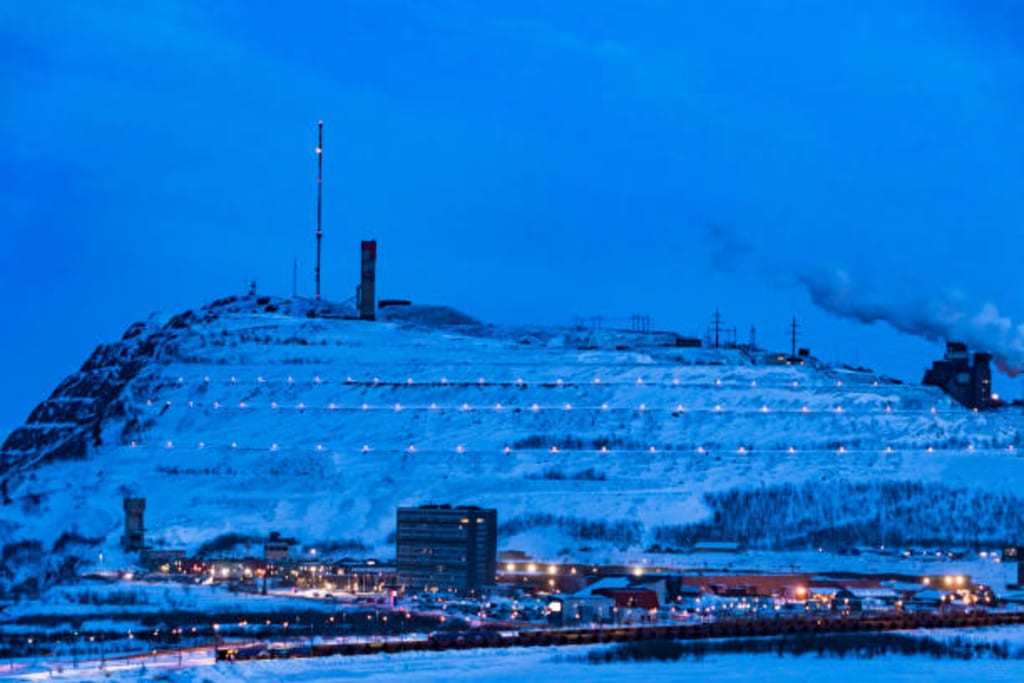Sweden Gaining Insane Riches
Sweden's Northern Kiruna Mine

On January 12th, 2023, Sweden's Deputy Prime Minister made an announcement that would be described as "exciting" and "enormously significant." The occasion marked a pivotal moment not only for Sweden but for the entire European Union.
LKAB, Sweden's Public Mining company, revealed an astonishing discovery in one of their northern mines, and the significance of this find was hard to overstate. Kiruna, where the discovery was made, is home to the largest and most advanced iron ore mine on the planet, responsible for approximately 80% of the iron ore produced in the EU. But the revelation about this ore went far beyond iron; it contained a treasure trove of rare earth metals, a group of 17 elements that include scandium, yttrium, and 15 lanthanides.
While the names of these elements might not stick with you, their importance in our daily lives is profound. They are essential for various technological applications that power our modern world, from the small yet powerful neodymium magnets in your headphones to the components that enable the vibrant colors on your screen. They're crucial in the development of electric vehicles, wind turbines, nuclear reactors, and advanced weaponry. In essence, they underpin our modern existence.
Mining rare earth metals commercially is a challenging endeavor, as these elements are often scattered in minute amounts within vast amounts of ore. This difficulty is compounded by the fact that these resources are not evenly distributed worldwide. Europe's dependency on other countries for these materials, primarily China, had reached alarming levels. In fact, Europe imported nearly 98% of its rare earth metals from China, a concerning state of affairs for these essential resources.
This issue has deep historical roots. China's rise to dominance in the rare earths market was orchestrated through a combination of strategic resource acquisitions in other countries and lax environmental regulations that allowed it to keep production costs low. These factors enabled China to gain a stranglehold on the global rare earths market, providing over 90% of the world's supply by 2010.
This dominance gave China not only economic leverage but also political influence. China's control over the supply chain meant it could manipulate the market to its advantage, sometimes using rare earth exports as a political tool. This situation became a critical concern for countries such as the United States and several EU nations who rely on rare earths for their defense technologies, among other critical applications.
The Per Geijer deposit in Sweden, discovered in the early days of 2023, promises to change this landscape. This deposit, found in close proximity to an existing mine, contains not only rare earth metals but also iron and apatite. This combination of minerals not only makes mining economically viable but also valuable for multiple industries.
With the deposit estimated to contain at least one million tons of rare earth elements, the potential impact on Europe's supply chain is substantial. While EU demand for rare earths was 1,400 tons in 2020, it's projected to reach 6,500 tons by the next decade and as much as 10,000 tons by 2050. This doesn't even take into account the demand for finished goods that contain rare earth metals. For example, the EU currently imports 16,000 tons of magnets annually, a third of which is composed of rare earth metals.
This discovery can fuel a significant shift in the European market, diminishing China's dominance in the arena of rare earth resources. Beyond ensuring a stable supply of these essential elements, Sweden's newfound wealth from Per Geijer could translate into substantial economic benefits for the nation, with car manufacturers, wind turbine producers, and others relying on these resources for their products.
In summary, the discovery of the Per Geijer deposit in Sweden stands to transform the rare earth metals landscape. It not only alleviates Europe's dependence on foreign sources, particularly China, for these critical elements but also promises to boost various industries and contribute to Sweden's prosperity in the years to come.
About the Creator
Ananymus Kelly
meticulous





Comments
There are no comments for this story
Be the first to respond and start the conversation.